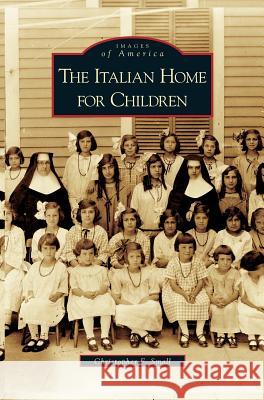Italian Home for Children » książka
Italian Home for Children
ISBN-13: 9781531622688 / Angielski / Twarda / 2005 / 130 str.
As it ravaged the world, the influenza epidemic of 1918 devastated Boston's congested North End and left hundreds of orphans in its wake. Touched by this crisis, a Roman Catholic priest and a group of Italian Americans founded the first home for Italian children in Massachusetts. Franciscan Sisters devoted 24 hours a day to providing the children with a safe, loving, and spiritual environment. In addition, the home provided educational support for its residents. Over time, the changing needs of children mandated that the agency change the nature of its services from custodial care to treatment. In 1974, in response to the changing political and social climate, the agency became the Italian Home for Children. Today, it is a nonprofit, nonsectarian residential treatment facility with a capacity for 61 children of all races, nationalities, and religions. The images in The Italian Home for Children document milestones in the organization's history: the devastating influenza epidemic, the Missionary Franciscan Sisters of the Immaculate Conception, Christmas plays, a visit from Joe DiMaggio, trips to Canobie Lake Park in the summer, the Tony Martin benefit performance at Boston Garden, and the home as it is today--a refuge for children in the most severe crises.
As it ravaged the world, the influenza epidemic of 1918 devastated Bostons congested North End and left hundreds of orphans in its wake. Touched by this crisis, a Roman Catholic priest and a group of Italian Americans founded the first home for Italian children in Massachusetts. Franciscan Sisters devoted 24 hours a day to providing the children with a safe, loving, and spiritual environment. In addition, the home provided educational support for its residents. Over time, the changing needs of children mandated that the agency change the nature of its services from custodial care to treatment. In 1974, in response to the changing political and social climate, the agency became the Italian Home for Children. Today, it is a nonprofit, nonsectarian residential treatment facility with a capacity for 61 children of all races, nationalities, and religions. The images in The Italian Home for Children document milestones in the organizations history: the devastating influenza epidemic, the Missionary Franciscan Sisters of the Immaculate Conception, Christmas plays, a visit from Joe DiMaggio, trips to Canobie Lake Park in the summer, the Tony Martin benefit performance at Boston Garden, and the home as it is today--a refuge for children in the most severe crises.











